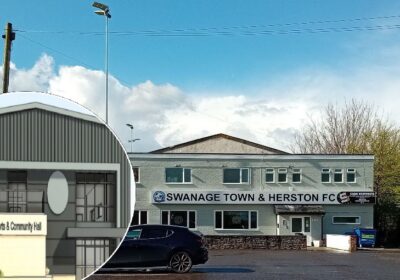INDUSTRIAL action by junior doctors could bring about “one of the most difficult starts to the year” for health services, the NHS said.
Junior doctors go on strike today (Wednesday) at 7am, until 7am next Tuesday (January 9) – the longest consecutive strike action ever taken in the history of the NHS.
The strikes are set to have a significant impact on almost all routine care, with consultants covering as the NHS prioritises urgent and emergency cases.
Junior doctors say they are walking out in a dispute over pay and conditions, with the latest pay deal from the government still meaning a “real-terms pay cut” this year.
Dr Robert Laurenson and Dr Vivek Trivedi, British Medical Association junior doctors committee co-chairs, said: “It’s regrettable that at our mutually agreed deadline during talks, the Government’s offer on the table would have still resulted in a real-terms pay cut for doctors this year.
“This led to our committee unanimously voting for further strike action.
“It is a shame the Government could have avoided the unnecessary disruption to patients if they had presented a credible offer, especially if there was, as suggested by the Secretary of State, another offer for them to make.”
Industrial action comes in the middle of the winter period, where the NHS is already under significant pressure, from factors such as seasonal illnesses and following the Christmas and New Year holidays.
Most recent data shows that people in hospital with flu has jumped to an average of 942 each day last week – almost six times the number compared to the week before.
The NHS has prepared extensively and earlier than ever before for the busier winter period with hundreds more beds in place, more ambulances on the road and 24/7 system control centres rolled out across the country to manage additional pressure.
Junior doctors took action for three days immediately before Christmas, which led to thousands of appointments being postponed.
Dr Michael Marsh, NHS England South West Medical Director, said: “January is always one of the most pressured times for the NHS. Six days of industrial action on top of an already busy time will make it extremely challenging for hospitals to maintain safe services this week.
“We have to ensure that we can provide safe care for people in urgent and emergency situations, which will mean significant disruption to routine care.
“People should still use 999 in life-threatening emergencies, but for everything else people should contact NHS 111 online or by phone in the first instance. GP services and pharmacies are also available for patients and can be accessed in the normal way.
“Hospitals are contacting people directly if their appointment or operation needs to be postponed. If you have an appointment and haven’t been contacted please attend as normal.”
NHS National medical director, Professor Sir Stephen Powis, said: “This January could be one of the most difficult starts to the year the NHS has ever faced.
“Six consecutive days of industrial action comes at one of our busiest periods – the action will not only have an enormous impact on planned care, but comes on top of a host of seasonal pressures such as covid, flu, and staff absences due to sickness – all of which is impacting on how patients flow through hospitals.
“Our colleagues across the health service are doing their very best for patients every day with extensive preparations in place, but there’s no doubt they are starting 2024 on the back foot – not only will action impact next week, it will continue to have a serious impact in the weeks after, as we recover services and deal with additional demand.
“However, I cannot stress enough that people who need care must come forward as they usually would – using 999 and A&E in life threatening emergencies and 111 online for everything else.”
But the BMA chairs said the situation could be resolved.
“It didn’t need to be this way,” they added. “The Health Secretary says she wants to ‘get this done’ and appeals to us to return to negotiations, yet we never walked away. It is her government that refuses to talk to us while strikes are scheduled.
“However, this is an inconsistent approach as the same Government engaged in talks with barristers during their strike action.
“We are clear that we will talk at any time, right up to the 11th hour, and if talks result in a credible offer we can put to members, then further strikes can be averted.
“If the Government is serious about wanting to resolve this dispute, it must drop its obstructive precondition and return to the table. Our door is open.”











Leave a Reply